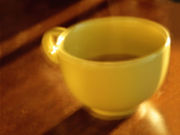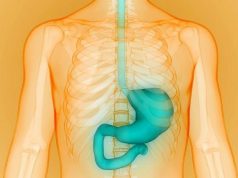Associations seen in univariate analysis, but no correlation after adjustment for confounders
THURSDAY, May 5, 2016 (HealthDay News) — After adjustment for confounding variables there is no correlation between the risk of Barrett’s esophagus (BE) and tea or coffee consumption, according to a study published in the May issue of Clinical Gastroenterology and Hepatology.
Krishna C. Sajja, M.D., from the Baylor College of Medicine in Houston, and colleagues examined the correlation between tea/coffee consumption and BE in a cross-sectional study among U.S. veterans. Three hundred ten patients with histologically confirmed BE were compared with 1,728 individuals with no endoscopic or histopathologic features of BE.
The researchers observed a statistically significant association between the risk of BE with consumption of coffee (odds ratio, 1.41; 95 percent confidence interval, 1.06 to 1.87) or tea (odds ratio, 1.34; 95 percent confidence interval, 1.05 to 1.71) in univariate models. However, after adjustment for confounders, including sex and race, there was no correlation between the risk of BE and consumption of coffee (adjusted odds ratio, 1.04; 95 percent confidence interval, 0.76 to 1.42) or tea (adjusted odds ratio, 1.11; 95 percent confidence interval, 0.85 to 1.44).
“These data do not support an association between consumption of coffee or tea and the risk of BE,” the authors write. “It is unlikely that avoidance of coffee or tea will protect against BE.”
Copyright © 2016 HealthDay. All rights reserved.








